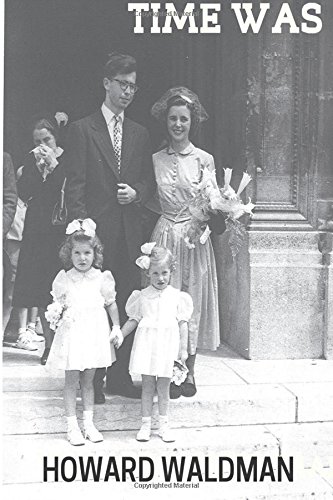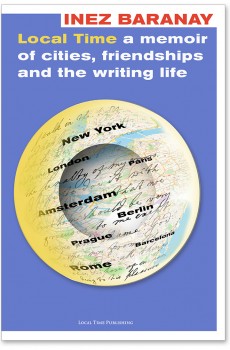 Some readers may claim that the memoir is about a privileged girl getting high all the time. But her brutal honesty and writing style about her not-so-glamorous experiences – going to rehab, struggling with bulimia, her reliance on stimulants – shows that there’s merit to this memoir. She’s not a bad writer, she’s just creative in expressing herself and conveying it to me. It doesn’t matter to me that she’s not following conventional grammar and syntax – she’s found a medium that works for her.
Some readers may claim that the memoir is about a privileged girl getting high all the time. But her brutal honesty and writing style about her not-so-glamorous experiences – going to rehab, struggling with bulimia, her reliance on stimulants – shows that there’s merit to this memoir. She’s not a bad writer, she’s just creative in expressing herself and conveying it to me. It doesn’t matter to me that she’s not following conventional grammar and syntax – she’s found a medium that works for her.
Category: Memoir
A review of GO: A Memoir about Binge-drinking, Self-hatred, and Finding Happiness by Jessica Bell
 Bell’s first (and possibly not last) memoir is a well-written, fast paced, and engaging read that chronicles Bell’s extensive struggles with depression, with being the child of two semi-famous gothic musicians, years of coping with her mother’s drug addiction, and the ongoing battle to maintain self-esteem against an inverse of Snow White’s evil queen’s mirror on the wall – the “reflection” of the title.
Bell’s first (and possibly not last) memoir is a well-written, fast paced, and engaging read that chronicles Bell’s extensive struggles with depression, with being the child of two semi-famous gothic musicians, years of coping with her mother’s drug addiction, and the ongoing battle to maintain self-esteem against an inverse of Snow White’s evil queen’s mirror on the wall – the “reflection” of the title.
A review of Time Was by Howard Waldman
 Time Was is not your usual birth to death autobiography. Waldman’s haphazard style is unique and somehow manages to be both lighthearted and dark at the same time, but these vignettes have an otherworldly quality about them. The subtitle is appropriate as the disconnected voice of the narrator is not only out of time and out of place, it is one that invites the reader to that liminal space.
Time Was is not your usual birth to death autobiography. Waldman’s haphazard style is unique and somehow manages to be both lighthearted and dark at the same time, but these vignettes have an otherworldly quality about them. The subtitle is appropriate as the disconnected voice of the narrator is not only out of time and out of place, it is one that invites the reader to that liminal space.
A review of The World of Yesterday by Stefan Zweig
For much of the book, Zweig brings all his formidable talents as a writer to evoke the Europe which he had lost. There is a fierce intelligence, a passionate humanity, a reverence for art at play here. He is in a sense a revenant, for his first readers no less than for us too, in that he embodies that lost Europe. We are given vivid, indelible portraits of Rilke, Rodin, Freud, Herzl, Hoffmanstahl, Rathenau, Joyce, Richard Strauss… These are some of those whom Zweig met and knew, sometimes worked and collaborated with.
This is Not my Life by Diane Schoemperlen
 As a left-wing person raised to practise the Golden Rule, I have felt guilty about it, since, on at least one significant occasion, my life was transformed by someone who took a chance on me. The question of when to open one’s heart and when to close it is an ongoing one. Diane Schoemperlen’s experience with Shane casts light on this question and makes us feel less alone in the struggle. Her wry humour and way with words keep it from being maudlin.
As a left-wing person raised to practise the Golden Rule, I have felt guilty about it, since, on at least one significant occasion, my life was transformed by someone who took a chance on me. The question of when to open one’s heart and when to close it is an ongoing one. Diane Schoemperlen’s experience with Shane casts light on this question and makes us feel less alone in the struggle. Her wry humour and way with words keep it from being maudlin.
A review of Farewell to the Father by Tim Elliott
 Mary Karr has said that every memoir is a survival story, triumphant just because the people are still breathing. Tim Elliott’s Farewell to the Father is a survival story with a capital S. Max Elliott was a larger-than-live character—full of laughter, a thrower of grand parties, letting Tim and his siblings grow pot in the backyard, walking around naked and performing mock-deaths in restaurants for the amusement of his family. But he also suffered terrible lows.
Mary Karr has said that every memoir is a survival story, triumphant just because the people are still breathing. Tim Elliott’s Farewell to the Father is a survival story with a capital S. Max Elliott was a larger-than-live character—full of laughter, a thrower of grand parties, letting Tim and his siblings grow pot in the backyard, walking around naked and performing mock-deaths in restaurants for the amusement of his family. But he also suffered terrible lows.
A review of Local Time: a memoir of cities, friendships and the writing life by Inez Baranay
 Baranay’s memoir is about travelling, art and culture(s) and food, home (and not having one), writing, and friendship. She begins by telling the reader that an inheritance has allowed her to plan a trip to Europe in 2006, one that will enable her to live well while she’s travelling but not be away too long as she does not want to stop writing for too many months. The author does not expect to write while she’s away, which gives us the first hint of a commitment to writing that is strong but realistic. In fact, she does write, and she describes how her life really revolves around writing and reading as well as friendship and human connection.
Baranay’s memoir is about travelling, art and culture(s) and food, home (and not having one), writing, and friendship. She begins by telling the reader that an inheritance has allowed her to plan a trip to Europe in 2006, one that will enable her to live well while she’s travelling but not be away too long as she does not want to stop writing for too many months. The author does not expect to write while she’s away, which gives us the first hint of a commitment to writing that is strong but realistic. In fact, she does write, and she describes how her life really revolves around writing and reading as well as friendship and human connection.
A review of Plain-Speaking Jane by Jane Caro
Regardless of how deeply Caro looks within for answers, what she never does is apologise. There’s absolutely no shame here—not of her mental health issues, her parenting, her outspokenness, her relationship choices, her political affiliations, her atheism, her engagement in public conversation or her career choices. By not apologising, even as she shares her worst mistakes, Caro encourages her readers to show compassion to themselves.
A review of The Odd Woman and the City by Vivian Gornick
 What we’re celebrating most of all in The Odd Woman and the City, is our mutual humanity: all those wonderful discordant notes, all of the flaws, and all of our failures. We love, we lose, and in these gaps, in these surprises, we make our art, our lives, our meaning.
What we’re celebrating most of all in The Odd Woman and the City, is our mutual humanity: all those wonderful discordant notes, all of the flaws, and all of our failures. We love, we lose, and in these gaps, in these surprises, we make our art, our lives, our meaning.
A review of Tesserae by Mathias B Freese
 Freese weaves a narrative rich in human frailty and humanity. His reflections regarding life, affection and the way we all change and become who we are now, may serve to motivate the reader toward exploring and perhaps setting down memories for themselves. Freese’s writing is distinctive and well-written with universal appeal. Tesserae is a work to be read and perhaps re-read, for the perceptions it offers into memory and the nature of the self.
Freese weaves a narrative rich in human frailty and humanity. His reflections regarding life, affection and the way we all change and become who we are now, may serve to motivate the reader toward exploring and perhaps setting down memories for themselves. Freese’s writing is distinctive and well-written with universal appeal. Tesserae is a work to be read and perhaps re-read, for the perceptions it offers into memory and the nature of the self.